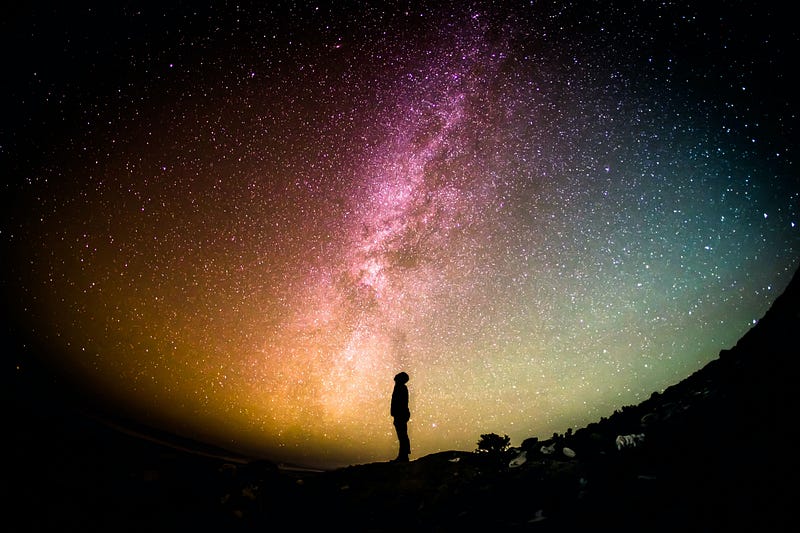Returning Our Borrowed Stardust: A Reflection on Life and Death
Written on
Chapter 1: The Concept of Borrowed Stardust
The phrase "borrowed stardust" is inspired by Maria Popova's tribute to Toni Morrison. It beautifully encapsulates the idea of life and death as a temporary borrowing of the universe's materials, which we return upon our passing. Let’s embark on a journey through our evolutionary history.
For billions of years, stars have risen and fallen, scattering their remnants into the cosmos. This stellar debris eventually contributed to the formation of new stars and planets, including Earth, which is fundamentally composed of this stardust.
The scientific term for this process is galactic chemical evolution. The emergence of modern humans took approximately 3 million years, marked by various attempts at developing a functional biped. Eventually, evolution succeeded in crafting a thriving species that inhabited the African jungles.
Around 70,000 years ago, our ancestors migrated from Africa, spreading across the globe. They adapted to diverse environments, developing distinct physical features and skin tones, communicating through a variety of sounds. This linguistic diversity flourished, shaped by the regions in which people settled.
To survive, early humans hunted animals and eventually mastered agriculture, leading to longer lifespans and population growth. However, abundance also brought conflict; territorial wars erupted, resulting in significant loss of life.
As nations clashed over differing beliefs about our origins and existence—questions regarding our beginnings, purpose, and mortality—many lives were lost in the pursuit of dominance for one narrative over another.
Reflecting on the history of Homo sapiens, one must ponder how our brief existence—merely a blip in evolutionary time—has culminated in a world fraught with division and self-destructive tendencies. The greed and strife we face are alarming, especially considering that all humans share a common ancestry.
Racism, in any form, is rendered meaningless by this shared heritage. We are all descendants of those early humans who bravely ventured into the unknown. We should honor their courage while grappling with the dire state in which we've placed our planet.
Ultimately, it is disheartening that our historical narrative often emphasizes wars and conflicts over the achievements of scientists, artists, and thinkers. As I contemplate my own eventual return to stardust, I hope it contributes to something more profound and meaningful.
Section 1.1: The Journey of Evolution
The journey of our species is both remarkable and tragic. From humble beginnings, we have developed complex societies and cultures. Yet, with our advancements come grave responsibilities.

Subsection 1.1.1: The Impact of Conflict
Conflicts have shaped our history, often overshadowing the contributions of those who sought knowledge and creativity. It is crucial to recognize the balance between our achievements and our failures.
Section 1.2: A Call for Reflection
As we reflect on our past, we must strive for a future that honors our shared humanity and the potential for growth beyond conflict.
Chapter 2: Returning to Stardust
A contemplative journey about the cyclical nature of life and the return to the cosmos.
The first video, "Return to Stardust (Healed from Earth Life)," explores the profound connection between life and the universe, inviting viewers to reflect on their own journeys.
An insightful exploration of our cosmic origins and the journey of existence.
The second video, "Back Into Stardust," delves into the idea of returning to our roots and the cyclical nature of existence, encouraging a deeper understanding of our place in the universe.